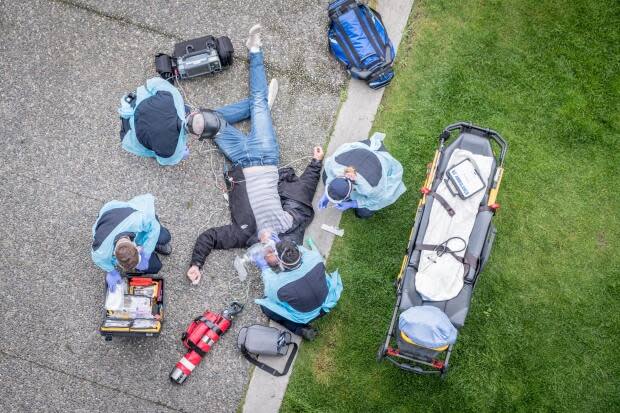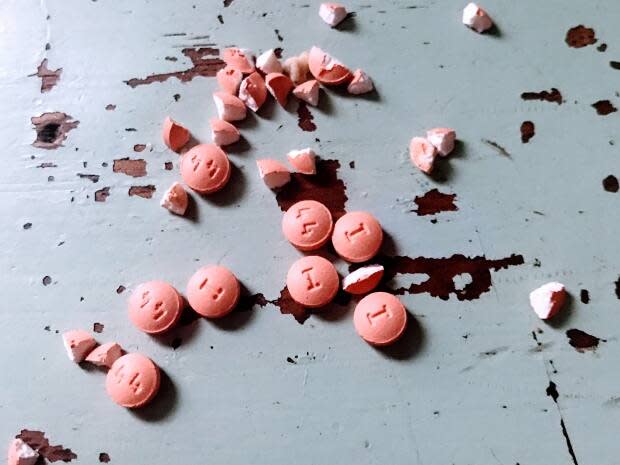Health alert issued over dangerous drug mix as overdoses spike in northern B.C.
A dangerous mix of dirty street drugs that's prevalent across the province has triggered a public health alert in northern B.C.
Officials say opioids contaminated with benzodiazepines are rendering life-saving naloxone less effective and raising the risk of overdose.
This week's alert, from Northern Health and the First Nations Health Authority, comes amid a dramatic rise in overdoses in the region.
Northern B.C. already has the highest per capita overdose death rate in the province.
Now, new data shows ambulance calls for drug overdoses jumped 56 per cent in the north in 2020, according to B.C. Emergency Health Services.
In Prince George alone, paramedics responded to almost 1,000 overdose calls last year, according to BCEHS.
In the first few weeks of 2021, paramedics in the north have already responded to 120 overdose calls.

"The Northern Health region had significantly higher overdose call volumes," said Shannon Miller, spokesperson for B.C. Emergency Health Services.
Jordan Harris, executive director of the POUNDS Project, a northern support group for drug users, said the contaminated drugs are "extremely concerning."
"You're not even sure what's in the drug that you're using, and there's the possibility of a fatal overdose," she said.
Health authorities are warning that illicit benzodiazepines — drugs like Ativan and Clonazepam — are contaminating opioid street drugs.
Because benzodiazepines are "downers," the toxic blend suppresses addicts' nervous systems twice over, slowing brain activity and suppressing breathing.

People who have overdosed on drugs contaminated with benzos may be more difficult to rouse, may remain unconscious, and are often slow to respond to naloxone, according to Northern Health.
That's because benzos work on a different pathway in users' brains, so naloxone has less impact than it would with an opioid alone.
Harris, of the POUNDS Project, says drug users tell her that benzo contamination is "extremely unsettling. Their overdose looks different. They have deep unconsciousness, they have very long periods of memory loss."
"It makes people very hard to revive when they're overdosing," said Dr. Rakel Kling, Northern Health medical health officer.
"It takes a lot more naloxone to reverse an overdose. They may need ... several doses," she said.
"[Paramedics] are administering more naloxone than ever before, sometimes multiple doses, due to the potency and toxicity of drugs across the province. It's taking more time to stabilize people," said Miller, of B.C. Emergency Health Services.
The problem is not confined to the north.
"Benzos are a common contaminant we're definitely seeing in the drug supply across B.C.," said Kling.
Medical officials in Vancouver raised concerns about benzos and opioids in B.C.'s drug supply in 2019.
"Since the start of the pandemic, the drug supply [has] become much more toxic," said Kling.
"It's still very much an emergency," she said.

 Yahoo Finance
Yahoo Finance 